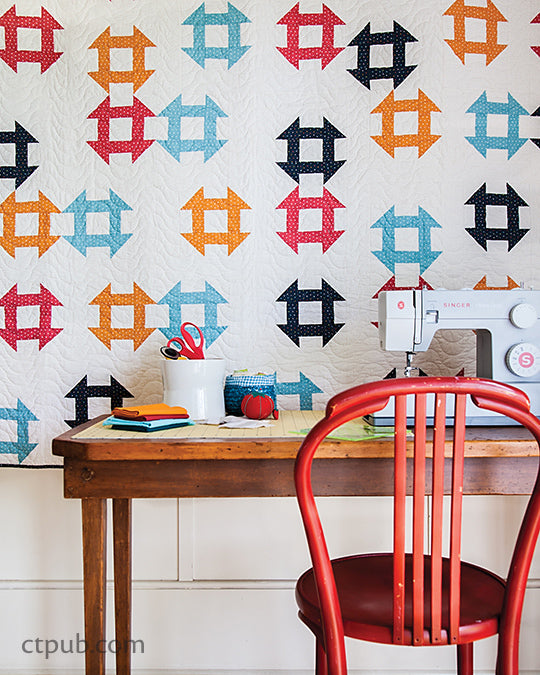
The Importance of Hobbies
Share

Photo from Modern One-Block Quilts
When it comes to improving your mental health, there are few better remedies than picking up a healthy hobby. Hobbies can get your mind active, and get you social—but the real benefit to most people is the boost to overall mental wellness. No matter what sort of mental issue you’re struggling with, there’s a good chance that throwing yourself into a hobby—such as quilting—will have a positive effect.
For reducing stress
Our daily lives are filled with stress—from our jobs, our kids, school, bills, and relationship conflict to a seemingly endless list of other minor stressors. Hobbies play an important role in mitigating some of this unavoidable stress, as they provide us with an outlet for creativity, distraction, and something to look forward to.
“Hobbies bring a sense of fun and freedom to life that can help to minimize the impact of chronic stress. Those who feel overwhelmed at a job, for example, can benefit from hobbies because they provide an outlet for stress and something to look forward to after a hard day (or week) at a stressful job,” says VeryWell.com.
Having a hobby to focus on forces us to take a break from stressful activities. Without a reason to take a break, we may unwittingly overwork ourselves to the point of exhaustion.
Studies have shown that some of the best hobbies for reducing stress include knitting, gardening, reading, and yoga. And as many quilters will attest, quilting is absolutely therapeutic as well!

From Simply Retro with Camille Roskelley
For boosting brain power and cognitive function
As we age, we need to keep our brains sharp with activity. An unused mind is a mind more susceptible to cognitive decline. The more interested we are in learning new things—and working out our brains—the more mental function we tend to hold onto.
“The more [seniors] took part in activities that are enjoyable and mentally demanding, the less likely they are to experience a decline in brainpower, while keeping the activities varied boosts brain health and longevity,” found a recent study.
Of course, it’s not just seniors who need to stimulate their brains on a daily basis. Folks at any age can benefit from stimulating hobbies.
“We need to think of our brains as both computers and muscles. The more information we put into our brains, the more functions they can perform. Likewise, the more we exercise our brains, the stronger they function,” notes Lifehack.org.
For helping those in addiction recovery
Distraction from boredom is very important for those in addiction recovery. As AlcoholRehab.com points out, “feeling bored is a dangerous emotion for people in recovery because it can lead to: Depression; Comfort eating which may lead to obesity and ill-health; Irritability; Dissatisfaction with recovery; and … feelings of anger.”
Hobbies that are particularly good for those in recovery include anything that channels negative energy into positive energy, and anything that allows you to create something from scratch (like quilting or some other form of sewing!).

Photo from Essential Sewing Reference Tool
No matter what your mental needs may be, there’s a good chance that picking up a healthy, enthralling hobby will help. Hobbies provide distractions, challenge the brain, and help stave off the boredom associated with the worsening of many mental health issues.











